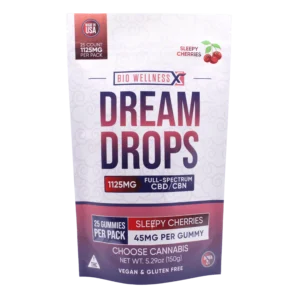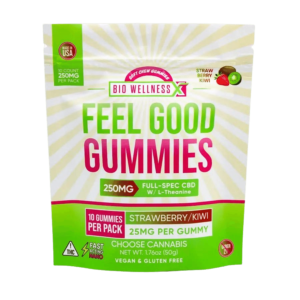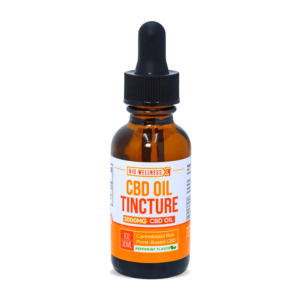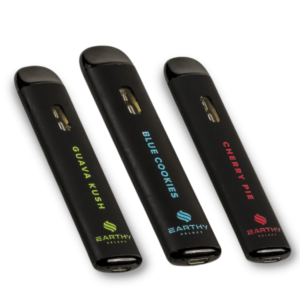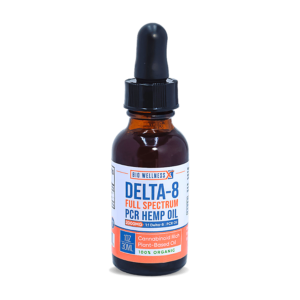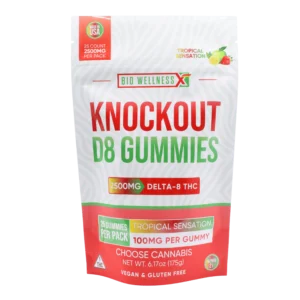key points
You’ve seen hemp-derived products everywhere—CBD oils, Delta-8 gummies, hemp-infused beverages—all promising relaxation, pain relief, and wellness without the “high” of traditional marijuana. But how safe are they really? With the 2018 Agriculture Improvement Act legalizing hemp-derived cannabis (containing less than 0.3% THC), the market exploded. Yet, FDA-approved hemp products remain scarce, and safety concerns linger. Are these naturally occurring cannabinoids harmless, or do they carry hidden health risks?
Let’s explore the scientific literature, regulatory gaps, and potency and safety analysis to uncover the truth.
What Are Hemp-Derived Products? The Legal & Chemical Landscape
At first glance, hemp plants (Cannabis sativa L.) and cannabis plants appear nearly identical—same genus, similar biochemistry, and shared ancestry. But under federal law, their legal status couldn’t be more different. This critical distinction stems from the 2018 Agriculture Improvement Act (Farm Bill), which carved out a narrow exception for industrial hemp while keeping marijuana strictly controlled.
The 0.3% THC Divide: How Federal Law Defines Hemp vs. Marijuana
- Hemp-derived cannabis: By definition, contains ≤0.3% THC (tetrahydrocannabinol) by dry weight. This trace amount is considered non-intoxicating under the Controlled Substances Act.
- Marijuana: Any cannabis sativa plant exceeding 0.3% THC remains classified as a Schedule I controlled substance by the Drug Enforcement Administration (DEA)—despite state-level legalization efforts.
This arbitrary 0.3% threshold (first proposed in 1976) has created what researchers call the “cannabis demarcation problem”—where nearly identical plants face wildly different legal consequences based on a razor-thin chemical margin.
The Explosion of Hemp-Derived Products: From CBD to Synthetic Cannabinoids
The Farm Bill’s legal loophole triggered a gold rush of hemp-derived products, each capitalizing on different naturally occurring cannabinoids or synthetically engineered compounds. The market is now flooded with a dizzying array of these products, each with its own benefits, risks, and regulatory ambiguities.
CBD Products: The Non-Psychoactive Frontrunner
CBD remains the most widely recognized hemp-derived compound, marketed as a wellness aid for conditions like anxiety and physical discomfort. Oils, tinctures, and capsules dominate the market, often sold with therapeutic claims despite limited FDA oversight. Topical applications—such as lotions and balms infused with hemp extract—are popular for localized relief, while CBD-infused foods and beverages, like gummies and sparkling waters, continue to proliferate despite the FDA’s refusal to regulate them as dietary supplements.
Recommended products
-
Dream Drops – CBD + CBN + THC – 45mg Per Gummy
$49.97In stock
-
Feel Good Gummies – Full Spectrum CBD + L-Theanine
$24.97In stock
-
Pure CBD Oil Tincture
Price range: $29.99 through $169.99In stock
Delta-8 THC: The Legal High That’s Changing the Game
Delta-8 THC has become a popular option for those seeking a smoother, more approachable high than Delta-9. Derived from hemp-based CBD, it offers mild psychoactive effects that many users find relaxing and enjoyable. While Delta-8 is federally legal under the 2018 Farm Bill, its legality can vary by state—so it’s important to check your local laws.
Like any cannabinoid, safety depends on sourcing. A 2023 ScienceDirect study raised concerns about adverse effects linked to unregulated Delta-8 products, especially those sold by shady online vendors with no transparency. That’s why buying from trusted suppliers like BioWellnessX is essential.
Other Cannabinoids Available On the Market
Beyond CBD and Delta-8, a host of lesser-known cannabinoids are entering the market, each with its own legal and safety concerns. HHC (Hexahydrocannabinol), a hydrogenated THC analog, has unclear safety profiles, while THC-O Acetate, a synthetic cannabinoid, is reported to be three times stronger than Delta-9 THC. Non-intoxicating compounds like CBG and CBN are marketed for their purported benefits, but clinical evidence supporting their efficacy remains scarce.
While hemp-derived cannabis offers potential health benefits, the lack of FDA regulation, inconsistent quality control, and rise of synthetically derived cannabinoids like Delta-8 THC create a minefield of safety concerns. Until stricter standards emerge, caveat emptor—let the buyer beware.
The Safety Concerns: Contaminants, Potency, and Mislabeling
Hemp is nature’s sponge. As a bioaccumulator, it aggressively absorbs toxins from soil—including heavy metals like lead, cadmium, and arsenic. This becomes a serious public health issue when hemp-derived products hit the market without proper safety testing.
A 2023 PMC study (PMC10369762) analyzed commercial CBD products and found:
- 36% contained lead levels exceeding California’s Prop 65 limits
- 22% had unsafe cadmium concentrations—a known carcinogen
- 12% tested positive for arsenic, which can accumulate in the body over time
The worst offenders? Products purchased online from unregulated vendors. Without certified reference materials or FDA regulation, consumers unknowingly ingest these toxins—especially in hemp extract oils and CBD-containing products marketed for daily use.
Why does this happen?
- Heavy metal-contaminated soil from industrial farming regions
- Lack of quality control in hemp seed sourcing
- No federal requirements for heavy metal screening in dietary supplements
B. Mislabeling & Potency Inconsistencies
Think that lab-tested label means accuracy? Think again. A 2023 MDPI study (Molecules 28(24), 8047) exposed shocking discrepancies in hemp and CBD products:
1. THC Content Roulette
- 52% of products exceeded the legal limit of 0.3% THC
- Some contained Delta-9 THC at levels found in medical cannabis
- No correlation between label claims and liquid chromatography results
2. Hidden Synthetic Cannabinoids
- 18% of samples contained synthetically derived compounds (like THC-O) not listed in ingredients
- These other cannabinoids may have unknown health effects
3. Major Cannabinoid Misrepresentation
- CBD products averaging 40% less CBD than advertised
- Full-spectrum hemp extract often missing minor cannabinoids like CBG or CBN
Why does mislabeling persist?
- No FDA-approved testing standards for cannabis-derived compounds
- Labs use inconsistent certified reference materials
- Products produced in bulk lack batch-by-batch potency and safety analysis
This regulatory chaos means consumers gamble with every purchase—whether seeking health benefits or avoiding psychoactive effects. Until federal law mandates stricter quality control, safety concerns will keep mounting.
FDA Regulation (Or Lack Thereof): A Regulatory Wild West
The hemp-derived cannabis market is a multi-billion-dollar industry operating in a regulatory vacuum. While the 2018 Agriculture Improvement Act legalized industrial hemp, the FDA has struggled to establish clear guidelines—leaving consumers vulnerable.
The Epidiolex Exception
Currently, only one hemp-derived product has full FDA approval: Epidiolex, a prescription CBD medication for rare forms of epilepsy. Its approval required rigorous clinical trials, safety analysis, and quality control measures that other CBD products simply bypass.
The Dietary Supplement Dilemma
Despite CBD’s popularity in dietary supplements, the FDA maintains that:
- CBD is not a legal dietary ingredient due to prior investigation as a drug
- Food products infused with CBD violate the Federal Food, Drug, and Cosmetic Act
- No enforceable standards exist for potency and safety analysis
This means most CBD products on shelves are technically illegal—yet the FDA has only issued warning letters to the most egregious violators. This again highlights the importance of shopping from trusted cannabis providers like BioWellnessX.
The Testing Crisis:
A major hurdle in FDA regulation is the lack of:
- Certified reference materials to verify cannabinoid content
- Consensus on liquid chromatography methods for potency and safety analysis
- Uniform quality control requirements for hemp extract manufacturing
A ScienceDirect review underscores the cannabis demarcation problem: Without strict oversight, mislabeled products, synthetic cannabinoids, and heavy metal contamination slip through the cracks.
State vs. Federal Chaos
While some states impose their own rules (e.g., lab testing mandates), the absence of federal law harmonization means:
- A product legal in Colorado could be banned in Idaho
- Hemp-derived THC products exploit loopholes to skirt Drug Enforcement Administration (DEA) scrutiny
- Consumers face inconsistent protections based on geography
Until the FDA steps in, public health remains at the mercy of an unregulated market.
Health Risks: What Does the Science Say?
CBD: The “Safer” Option?
- CBD products are non-psychoactive but not risk-free
- They inhibit liver enzymes (CYP450), altering metabolism of other drugs like blood thinners and antidepressants
- A 2021 PMC study found CBD-containing products exacerbated side effects when mixed with prescription medications
The Hemp-Derived THC Wildcards
- Unlike naturally occurring cannabinoids, Delta-8 THC, Delta-10 and Delta-11 THC are often synthetically derived
- Its psychoactive effects vary widely—some users report anxiety or paranoia
- Poison control centers note a spike in adverse events, including hallucinations and loss of coordination
The Need for Clinical Trials
Most hemp-derived cannabis lacks clinical trials to confirm:
- Long-term health effects
- Safe dosing thresholds
- Impacts on medical conditions like epilepsy or chronic pain
Safety analysis relies on post-market surveillance—meaning risks emerge only after widespread use.
How to Choose Safe Hemp Products: A Buyer’s Survival Guide
Navigating the hemp-derived cannabis market requires vigilance—here’s how to separate quality products from potentially dangerous imitations.
Third-Party Lab Testing: Your First Line of Defense
Reputable companies provide Certificates of Analysis (COAs) from independent labs. These documents should verify:
- Potency and safety analysis confirming THC content is within legal limits
- Absence of heavy metals (lead, arsenic, cadmium) from contaminated soil
- No detectable levels of harmful pesticides or residual solvents
- Accurate labeling of major cannabinoids (CBD, CBG, CBN)
Be wary of brands that don’t share COAs or use in-house testing—this is a red flag for quality control issues.
Extraction Methods Matter: Avoid Cheap Shortcuts
- Supercritical CO2 extraction is the gold standard—it’s clean and efficient
- Ethanol extraction can be safe if properly purged of solvents
- Hydrocarbon extraction (butane/propane) risks leaving toxic residues in hemp extract
Steer clear of products that don’t disclose their extraction process—especially Delta-8 THC and other cannabinoids, which often involve synthetic conversion.
Transparency About Psychoactive Effects
- Full-spectrum hemp products may contain trace THC (up to 0.3%)—enough to trigger a positive drug test
- Broad-spectrum and isolate products are THC-free but may lack the “entourage effect”
- Synthetically derived cannabinoids (like Delta-8 or THC-O) should carry clear warnings about psychoactive effects
Note: Brands that downplay these risks are not trustworthy.
Reputation Over Hype: How to Vet Brands
- Check for FDA warning letters or poison control center reports
- Look for companies that disclose their hemp seed source and farming practices
- Prefer brands that adhere to current Good Manufacturing Practices (cGMP)
- Read third-party reviews and watch for patterns of adverse effects
Remember: A fancy label doesn’t guarantee safety—certified reference materials and rigorous safety testing do.
Final Thoughts: Is Hemp-Derived Cannabis Safe?
The safety of hemp-derived cannabis remains uncertain due to significant regulatory gaps. While offering potential health benefits, the industry operates without proper FDA oversight, creating substantial consumer risks. Three critical concerns dominate:
- Only Epidiolex carries FDA approval, leaving most products without standardized safety testing or quality control. This allows contaminated and mislabeled items to flood the market unchecked.
- Synthetic cannabinoids like Delta-8 THC bypass DEA oversight through legal loopholes, while hemp’s natural bioaccumulation of heavy metals introduces additional toxicity concerns. Emergency room visits linked to these products continue rising.
- Most healthcare providers lack training to advise patients about drug interactions or proper dosing, particularly for vulnerable populations.
Until comprehensive federal regulations mandate rigorous third-party testing, standardized manufacturing practices, clear labeling requirements, and medical professional education, consumers must exercise extreme caution. The current market prioritizes profit over safety, making informed purchasing decisions and consultation with knowledgeable healthcare providers essential precautions. Safety should never be assumed with hemp-derived products – it must be verified through proper regulation and transparency.

Legal Disclaimer:
By reading this information presented, you agree to release the author of any liability that comes from using this data. This post contains no legal advice. Claims about cannabinoids have not yet been approved by the FDA. This article was written in 2025, cannabis laws and regulations are subject to change. Read the full legal disclaimer here.
References
- https://link.springer.com/article/10.1186/s42238-023-00197-6
- https://www.sciencedirect.com/science/article/abs/pii/B9780323897730000242
- https://www.sciencedirect.com/science/article/abs/pii/S0277953623005464
- https://www.mdpi.com/1420-3049/28/24/8047
- https://www.sciencedirect.com/science/article/abs/pii/B9780323897730000242
- https://pmc.ncbi.nlm.nih.gov/articles/PMC10369762
No. While federally legal under the 2018 Farm Bill, many states have banned or restricted Delta-8 and other cannabinoids due to safety concerns and legal ambiguities.
Unregulated hemp products may contain heavy metals, synthetic cannabinoids, and mislabeled THC levels, increasing the risk of toxicity, psychoactive effects, and dangerous drug interactions—especially when sourced online.
Yes. Delta-8 has been linked to vomiting, paranoia, and ER visits. Many products are synthetically made from CBD, raising additional concerns over solvent residues and inconsistent potency.
Look for third-party COAs showing potency and contaminant testing, prefer brands using CO₂ extraction, and avoid products lacking ingredient transparency or proper safety warnings.
Because CBD was previously studied as a drug (Epidiolex), it cannot legally be sold as a dietary supplement. The FDA has not issued enforceable rules for most hemp-derived items.


